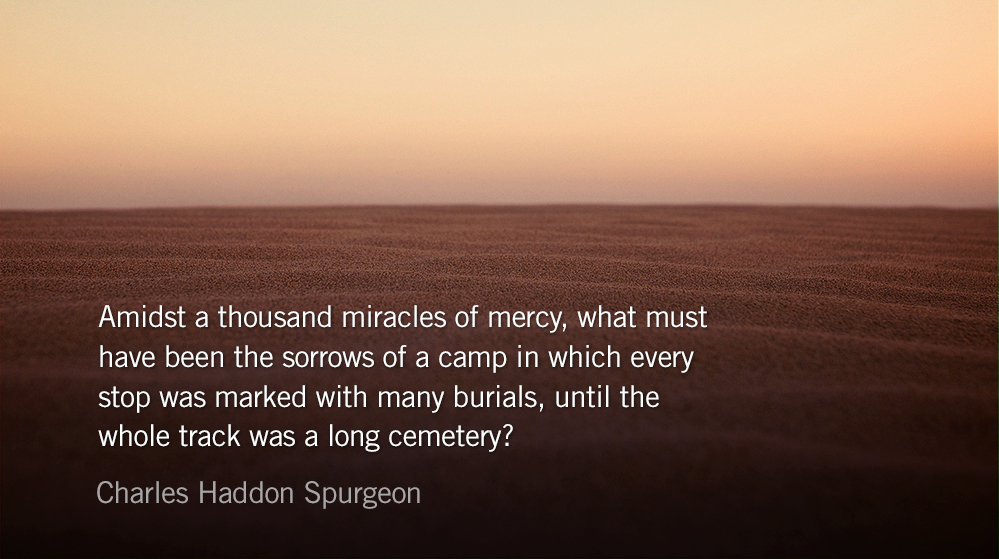By Charles Haddon Spurgeon (1834-1892)
Satisfy us in the morning with your steadfast love, that we may rejoice and be glad all our days. — Psalm 90.14
Israel had suffered a long night of affliction. Dense was the darkness while they abode in Egypt, and cheerless was the glimmering twilight of that wilderness which was covered with their graves. Amidst a thousand miracles of mercy, what must have been the sorrows of a camp in which every stop was marked with many burials, until the whole track was a long cemetery?
The voice of wisdom in our text reminds that you are not pure in God’s sight, but need his mercy. Early, as it is with you, you must come before God on the same footing as those who seek him at the eleventh hour. Nothing is said about merit, nothing concerning the natural innocency of youth, nor the beauty of the juvenile character.
Remember, beloved young friends, that if you are saved in the morning of life, you will have wonderful instances of preventing mercy. It is great mercy which blots out sin, but who will say that it is not equally great mercy which prevents it? What a million mercies are here compressed into one!
Salvation, if it comes to you, must not only be mercy, but it must be mercy through the cross. I infer that from the text, because the text desires it to be a satisfying mercy, and there is no mercy which ever can satisfy a sinner, but mercy through the cross of Christ.
Many preach a mercy apart from the cross. Many say that God is merciful, and therefore surely he will not condemn them—but in the pangs of death, and in the terrors of conscience, the uncovenanted mercy of God is no solace to the soul.
Some proclaim a mercy which is dependent upon human effort, human goodness, or merit—but no soul ever yet did or could find any lasting satisfaction in this delusion. Mercy by mere ceremonies—mercy by outward ordinances—is but a mockery of human thirst.
There is no resting place for conscience but at the cross. Priests may preach what they will, and philosophers may imagine what they please, but there is, in the unresting conscience of man, an indication that the cross of Christ must have come from God—because that conscience never ceases from its disquiet till it hides in the wounds of the Crucified.
*Abridged from “The Young Man’s Prayer,” delivered by Charles Haddon Spurgeon in 1863.
Today’s Reading
Ezekiel 39 (Listen – 4:51)
Psalms 90 (Listen – 2:03)






